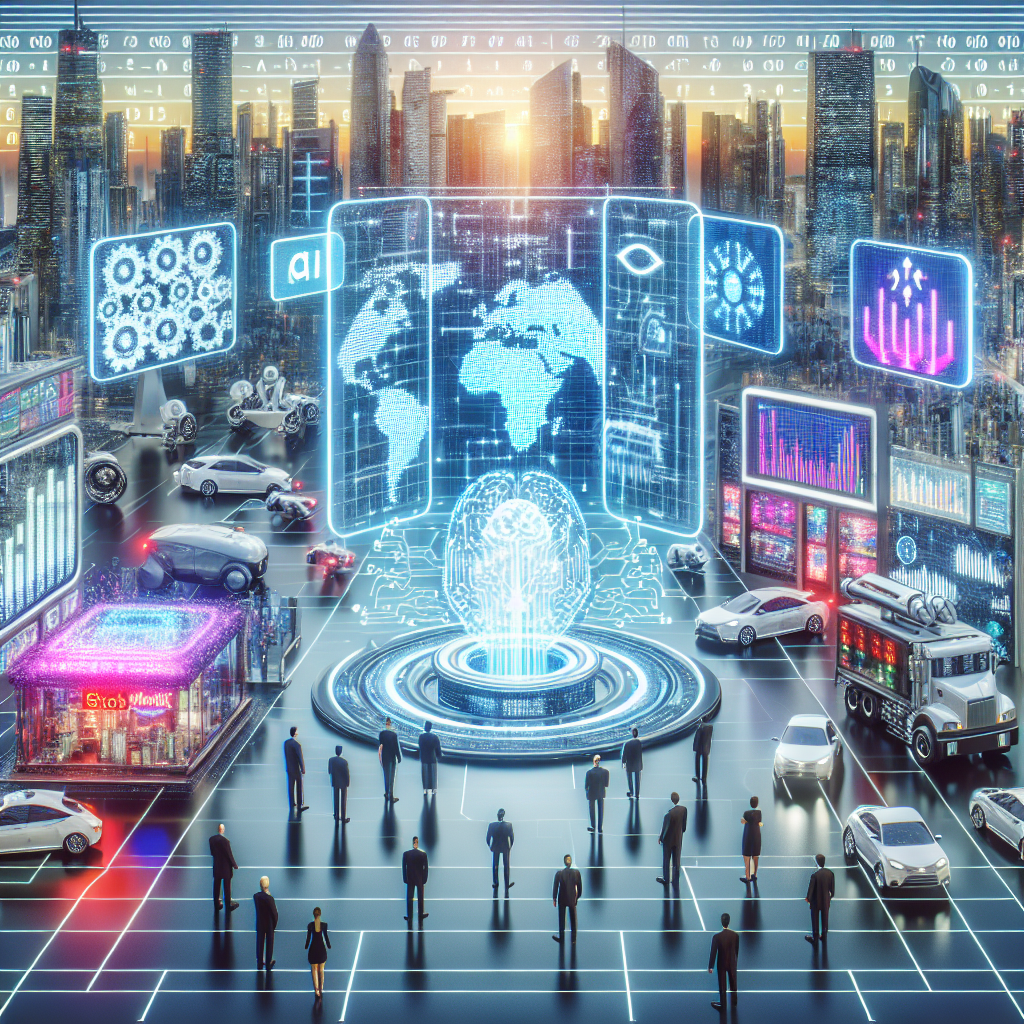The Implications of AGI: What it Means for Society and the Economy
Artificial General Intelligence (AGI) refers to a type of artificial intelligence that possesses the ability to understand, learn, and apply knowledge in a general sense, similar to how a human would. While current AI technologies are limited to specific tasks and functions, AGI has the potential to revolutionize industries, societies, and economies in ways that are both exciting and concerning.
In this article, we will explore the implications of AGI on society and the economy, including the benefits and challenges that may arise with its development and integration. We will also address common questions and concerns surrounding AGI and its impact on various aspects of our daily lives.
Benefits of AGI
One of the most significant benefits of AGI is its potential to enhance efficiency and productivity across a wide range of industries. With the ability to learn and adapt to new situations, AGI could automate complex tasks, streamline processes, and improve decision-making in ways that human intelligence alone cannot achieve.
For example, in the healthcare industry, AGI could help medical professionals diagnose diseases more accurately and quickly, leading to better patient outcomes. In the transportation sector, AGI could optimize traffic flow, reduce accidents, and improve the overall efficiency of public transportation systems. In finance, AGI could assist in predicting market trends, identifying investment opportunities, and managing risks more effectively.
Furthermore, AGI has the potential to drive innovation and creativity by synthesizing vast amounts of data, generating new ideas, and solving complex problems that were previously unsolvable. This could lead to breakthroughs in areas such as scientific research, engineering, and technology development, accelerating progress and pushing the boundaries of human knowledge.
Challenges of AGI
Despite its potential benefits, the development and deployment of AGI also pose significant challenges and risks to society and the economy. One of the primary concerns is the impact of AGI on employment and the workforce. As AGI becomes more capable of performing tasks that were traditionally done by humans, there is a fear that it could lead to widespread job displacement and unemployment, particularly in industries that rely heavily on manual labor and routine tasks.
Furthermore, there are ethical and societal implications to consider when it comes to AGI, such as issues related to privacy, security, bias, and accountability. For example, there are concerns about how AGI systems will handle sensitive personal data, make decisions that affect people’s lives, and interact with humans in ethical and responsible ways. There is also a risk of AGI being used for malicious purposes, such as surveillance, manipulation, or warfare, which could have devastating consequences for society.
Another challenge is the potential for AGI to exacerbate existing inequalities and power imbalances within society. If AGI is controlled by a small group of individuals or organizations, it could lead to the concentration of wealth and power in the hands of a few, further widening the gap between the haves and the have-nots. This could have profound social and economic implications, creating social unrest, political instability, and economic disparities that undermine the fabric of society.
FAQs about AGI
Q: What is the difference between AGI and other types of AI?
A: AGI is distinguished from other types of artificial intelligence, such as narrow AI or machine learning, by its ability to perform a wide range of tasks and functions in a general sense, similar to human intelligence. While narrow AI is designed for specific tasks or applications, AGI has the capacity to learn, reason, and adapt to new situations without being explicitly programmed to do so.
Q: When will AGI be developed?
A: The timeline for the development of AGI is uncertain and highly debated among experts in the field. Some believe that AGI could be achieved within the next few decades, while others argue that it may take much longer or may never be achieved at all. The pace of progress in AI research and technology development will ultimately determine when AGI becomes a reality.
Q: What are the potential risks of AGI?
A: There are several risks associated with the development and deployment of AGI, including job displacement, ethical concerns, security vulnerabilities, and societal implications. AGI has the potential to disrupt industries, economies, and societies in ways that are difficult to predict and control, leading to unintended consequences and unforeseen challenges that must be carefully considered and addressed.
Q: How can we ensure the responsible development and use of AGI?
A: To mitigate the risks and challenges associated with AGI, it is essential to prioritize ethical considerations, transparency, accountability, and collaboration in the design, development, and deployment of AGI systems. This includes establishing clear guidelines and regulations for the responsible use of AGI, ensuring that decisions made by AI systems are fair, unbiased, and aligned with human values, and promoting a shared understanding of the potential impacts of AGI on society and the economy.
In conclusion, the implications of AGI on society and the economy are vast and complex, with both opportunities and challenges that must be carefully considered and addressed. While AGI has the potential to revolutionize industries, drive innovation, and improve the quality of life for people around the world, it also poses risks and uncertainties that require thoughtful and responsible stewardship. By approaching the development and deployment of AGI with caution, foresight, and a commitment to ethical principles, we can harness its potential for good and ensure a more equitable and sustainable future for all.

